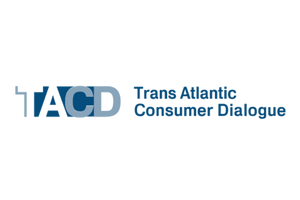The Transatlantic Consumer Dialogue (TACD) is a prominent forum that brings together consumer organizations from both the United States and the European Union. Established to foster cooperation and develop joint consumer policy recommendations, TACD aims to promote and protect consumer interests in transatlantic political negotiations and regulatory processes. Since its first registration with the EU Transparency Register in May 2013, TACD has positioned itself as a key actor in influencing EU policy, particularly in areas such as trade, digital rights, food safety, and product standards.
TACD operates as a network of approximately 77 consumer organizations from the EU and the US, working collaboratively to ensure that consumer voices are heard in EU and US policy-making arenas. The organization focuses on raising awareness among policymakers about the impact of trade agreements and regulatory decisions on consumers. Its work includes providing recommendations and engaging in dialogue with EU institutions to influence legislation and policy implementation.
A distinctive feature of TACD is its emphasis on transatlantic cooperation, bridging consumer interests across two major economic regions. This approach allows it to address issues that transcend borders, such as digital privacy, financial services, and sustainable consumption. TACD’s advocacy efforts are supported by its Trade Policy Committee, which actively communicates with EU and US policymakers to highlight consumer concerns regarding trade agreements like the Transatlantic Trade and Investment Partnership (TTIP).
TACD’s credibility and influence are reinforced by its affiliation with well-established consumer organizations, including the European Consumer Organisation (BEUC). Key figures such as Léa Auffret from BEUC have played significant roles in representing consumer interests within TACD’s framework, particularly in international trade discussions.
The organization is committed to transparency and accountability, complying with the EU Transparency Register’s code of conduct. It regularly discloses its lobbying activities, financial expenditures, and meetings with EU institutions. This openness facilitates public scrutiny and ensures balanced representation in the EU decision-making process.
Overall, TACD is a vital player in EU lobbying, advocating for consumer rights and interests at a transatlantic level. Its sustained efforts contribute to shaping policies that affect millions of consumers, emphasizing fairness, safety, and sustainability in the marketplace.


